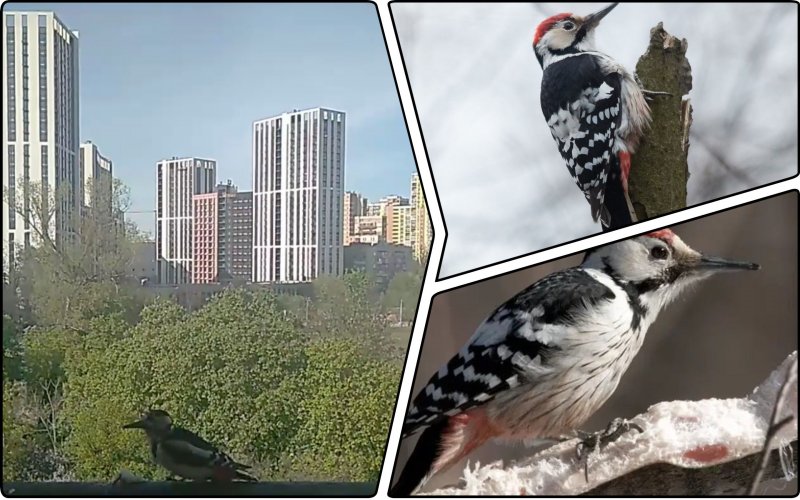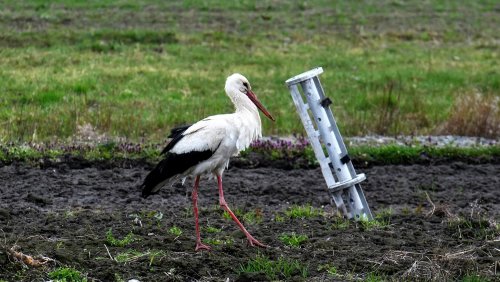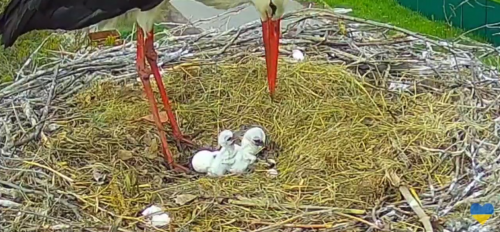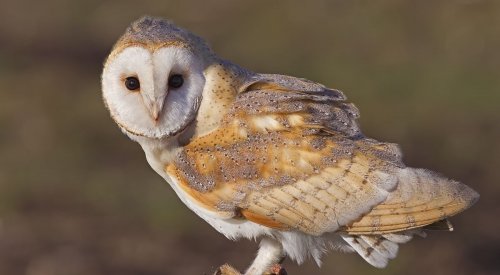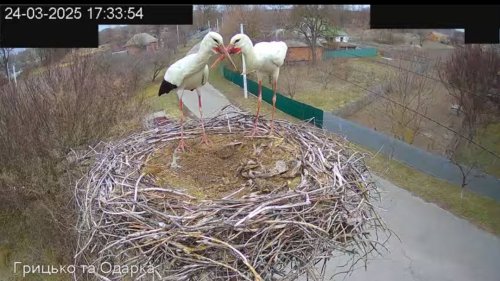Denys Staji, a native of Kyiv, set up a bird feeder with lard on his balcony near the Start stadium, which helped a pair of red-letter birds to survive white-backed woodpeckers and their chicks.
Usually these birds live in ancient forests and do not survive in the city, but thanks to the care of the townspeople, they were able not only to survive, but also to raise two chicks, Staji wrote on his Facebook page.
He said that he had set up the feeder at the end of autumn, and was already planning to take it down in the spring, because there was more natural food for the birds. However, one day in April, a previously unknown bird came to the feeder, which turned out to be white-backed woodpecker.
Staji emphasized that only 700-900 pairs of such woodpeckers live in Ukraine. At first he assumed that it was a lonely bird that flew out of someone's cage.
"The woodpecker began to fly "to the lard" regularly, ate with appetite, eagerly pecked the balcony railing with its beak along with the lard. And soon a female joined him – she pecked the fat more delicately and in general behaved very differently from the male," he shared, assuming that the birds migrated because of the war.
Mr. Denys noted that the birds also tried to find insect larvae on his balcony, damaging the railing. Woodpeckers settled in tall trees on the territory of the Start stadium across the road from his house and came to eat two or three times a day. The birds actively defended their new home from crows and other competitors.
"I have seen more than once from the balcony how a male woodpecker dives at one or another crow with a loud cry, driving it away from an observation point on a tree branch or a street lamp," he said, emphasizing that the woodpecker is three times smaller than a crow.
Staji added that at the beginning of May, it became clear that the female was laying eggs: her sides became rounded, and her movements became very cautious.
"Instead, I flew more often for fat. Then the woodpeckers disappeared for a few days. And then they started flying in for lard every 20-30 minutes. It became clear: the chicks have hatched, he shared. – Both the woodpecker and the woodpecker have noticeably lost weight. They flew in, tore off pieces of fat, and carried them directly in their beaks to the nest – to feed the chicks."
He said that the woodpeckers flew in for the first portion of food exactly at 4 o'clock in the morning. And if the feeder was empty, the birds started making a lot of noise so that people would wake up and feed them.
"We also distinguished the voices of woodpeckers well. When one of the couple flew to the balcony, he made one sharp and loud cry, informing his partner that everything is fine. And if the spouses flew in together, they communicated, humming softly, almost like pigeons. It looked very gentle. And we watched – fortunately, the woodpeckers were practically not afraid of us," he said Internships
He added that it lasted for about a month, and then the woodpeckers came with her two fledgling chicks. Over time, the visits of woodpeckers became rare, and then the birds disappeared altogether. They are probably back in the wild.
As EcoPolitic previously reported, in Kyiv, in the Bortnychi microdistrict, in the Darnytskyi district, energy workers installed a special platform for a stork's nest on an electric pole.

